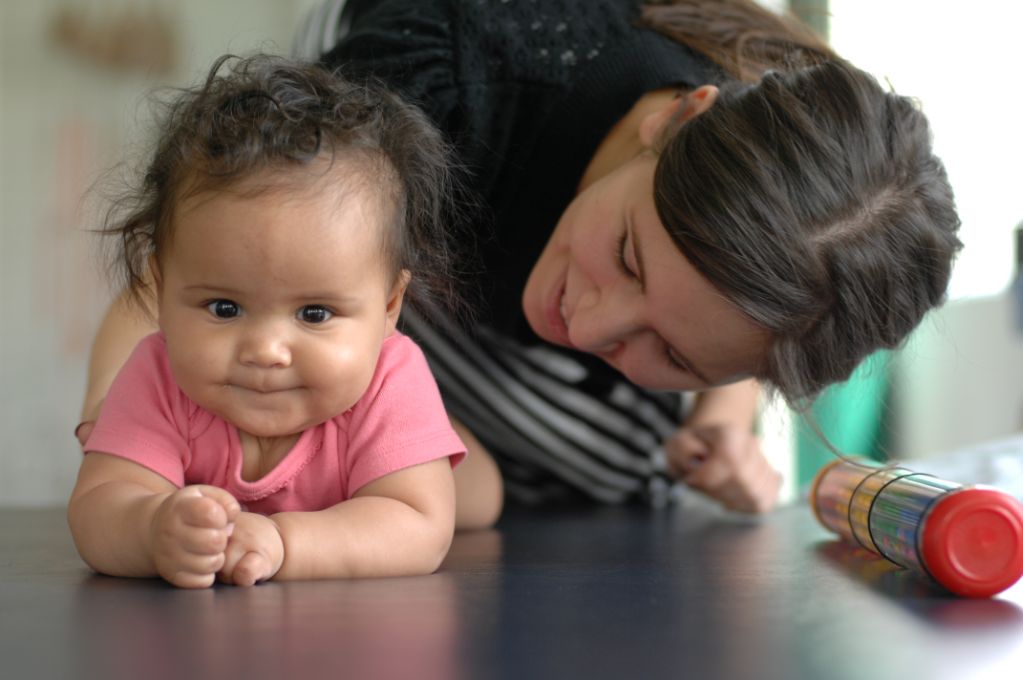Early Detection + Early Intervention = A Life Full of Possibilities

Early Detection + Early Intervention = A Life Full of Possibilities
Baby’s early years are some of the most important years for their development, which is why early detection and early intervention are so critical. In the first years of baby’s life, their brain has a tremendous ability to learn and create new neural pathways, otherwise known as neuroplasticity. In fact, the greatest period of neuroplasticity is from birth to 3 years of age with baby’s brain developing between 700-1,000 new neural connections every second.
So What Does This Really Mean?
Baby is constantly learning. And there is a great opportunity to teach them new things and help set their development on the right path. So if you notice baby is having difficulty with a certain skill or that something “isn’t quite right,” then now is the time to talk with your healthcare provider.
EI Programs with Healthcare Professionals
How Many Kids Are at Risk For a Delay?
Research estimates roughly 600,000 babies are born at risk for early delays each year and less than 50% are identified early. But why?
There are a number of reasons but mostly it has to do with a lack of awareness and understanding of early warning signs and knowledge about the benefits of getting help early. But don’t worry, Pathways.org is here to help and you have made the first step by visiting our website.
ALT_TEXT_HERE
How to Help Identify Early Delays
- Keep a notebook about your child’s development. Write down if you notice any concerning or unusual habits. Bring this when you go in for your well-baby checkup and talk it over with your baby’s healthcare provider.
- Use Pathways.org checklists, brochures, and videos to track your child’s development (these are also great additions to bring to you well-baby check).
- Don’t be afraid to be persistent if you think something is wrong. You know your baby best, so trust your instincts. If you have concerns, talk to your healthcare provider and seek out a second opinion or find a therapy clinic to get a free screening.
The goal of early detection is to have babies learn proper movement at its appropriate time of development. Research suggests it takes between 300-350 repetitions to build a new motor or movement pattern; however, it can take 3000-5000 repetition to “re-train” the proper movement. This means that it is much easier to learn to do something right the first time then try to correct something after it has already been learned.
ALT_TEXT_HERE
So I Am Concerned…What Now?
The answer is early intervention. There are many activities, programs, and procedures that can benefit children who may need some extra help with their development. Some need to be provided by a healthcare professional but others are as simple as home activities and games you can do with your baby.
Here are some examples you can check out:
- ATVV
- Baby Games and Activities Calendar
- Tummy Time
EI Programs With Healthcare Professionals
Additionally, state funded Early Intervention is a great service for children with developmental delays that allows them to receive therapy services in their home so they can reach their fullest potential. Services include physical, occupational, feeding, and speech-language therapy. Early Intervention is a federally mandated program of coordinated services, through IDEA Part C, that provides support and education to children with developmental delays and their families. Children ages 0-3 exhibiting delays in physical, cognitive, communication, and social/emotional development are eligible for services.
Payment & Who Qualifies
Every state is different when it comes to which children and developmental concerns qualify. Some states offer free services, while other states have a sliding scale based on insurance. To find out more about your state’s requirements, go to the Center for Disease Control’s website.
Other Ways to Get Help
If your child does not qualify for early intervention but you still feel like your child might need a little extra help, pediatric therapy clinics can be a wealth of knowledge. Most clinics offer free screenings and/or can give you a home based program to help get your baby back on track. Just ask Charlotte, she is a great example of what a home program can do. Watch how baby bootcamp helped her conquer Tummy Time.
A Hope for All Children
By encouraging early detection and early intervention, Pathways.org hopes that all children can reach their fullest ability.
Remember earlier is always better but it is never too late.
Πρόσφατα Άρθρα

Why Baby’s Sense of Smell is Important
What’s in a Scent?
They say the nose knows. That couldn’t be truer for your newborn. Their sense of smell is not just incredibly strong, but it helps them learn about people and places, ...

Early Detection + Early Intervention = A Life Full of Possibilities
Baby’s early years are some of the most important years for their development, which is why early detection and early intervention are so critical. In the first years of baby’s life, their brain ha...

Baby-Proofing: 14 Tips for Your Home
Baby-Proofing: 14 Tips for Your Home
Your little one is movin’ and cruisin’! So what’s next? Now the challenge is making sure your house is ready for your toddler’s new explorations. Fol...
